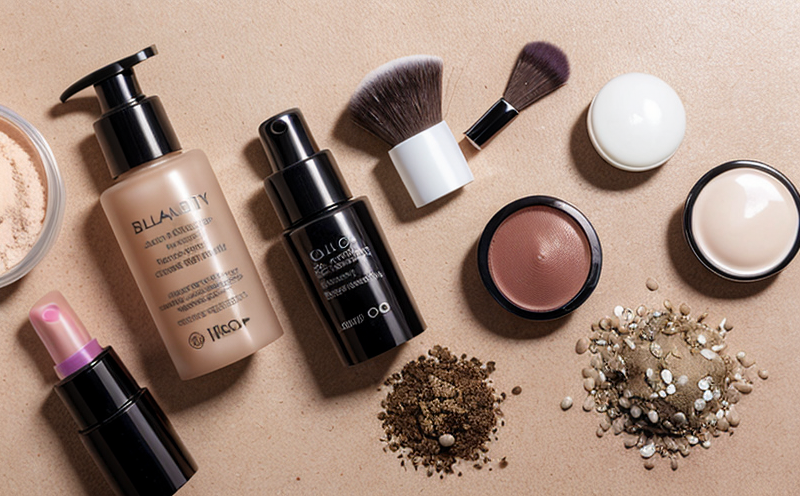Biodegradability Testing of Cosmetic Thickeners
The environmental impact and biodegradability of cosmetic products are critical factors in the modern beauty industry. As consumers become more environmentally conscious, there is growing demand for sustainable products that do not harm the planet after use. Biodegradability testing of cosmetic thickeners plays a pivotal role in ensuring that these ingredients meet regulatory standards and consumer expectations.
Thickeners are essential components in cosmetics as they provide texture, consistency, and stability to formulations. However, their biodegradability is not just about degrading; it's also about the rate at which they decompose into harmless substances under environmental conditions. This characteristic is crucial for reducing the ecological footprint of cosmetic products.
Biodegradability testing involves assessing how quickly and completely a thickener breaks down in natural environments, such as soil or water. The tests simulate real-world conditions to ensure that thickeners do not persist in the environment, causing potential harm to ecosystems. This service is particularly important for companies developing eco-friendly formulations, ensuring they comply with international standards.
Testing methods typically include aerobic and anaerobic biodegradation assays. In aerobic tests, the thickener is exposed to air and microorganisms found in soil or water to observe its breakdown rate. Anaerobic tests are conducted under conditions where no oxygen is present, mimicking environments like landfill sites. The results help determine whether a thickener can be degraded by natural processes within acceptable time frames.
Accurate and reliable biodegradability testing requires precise specimen preparation, which involves selecting appropriate samples that reflect the thickeners used in cosmetic formulations. Specimens must be prepared under controlled conditions to ensure consistent results across multiple tests. The choice of test duration is also critical; longer durations provide more accurate assessments but may require more resources.
Instrumentation plays a vital role in biodegradability testing, with advanced analytical tools capable of detecting minute changes in the chemical composition of thickeners as they degrade. These instruments can measure pH levels, dissolved oxygen concentrations, and microbial activity, providing comprehensive data on the degradation process.
The acceptance criteria for biodegradability tests are based on international standards such as ISO 14855-2:2006 and OECD Guidelines for Testing of Chemicals. These guidelines provide specific protocols to ensure that testing is conducted uniformly across different laboratories, enhancing the reliability and validity of results.
| Industry Segment | Application |
|---|---|
| Skin Care | Evaluating the biodegradability of thickeners used in lotions and creams. |
| Hair Care | Assessing the environmental impact of thickening agents in shampoos and conditioners. |
| Makeup | Determining the biodegradability of thickeners used in foundation, lipstick, and mascara formulas. |
Eurolab Advantages
At Eurolab, we offer comprehensive biodegradability testing services tailored specifically for cosmetic thickeners. Our expertise lies in providing accurate, reliable results that comply with international standards.
- State-of-the-art laboratories equipped with cutting-edge technology for precise specimen preparation and analysis.
- Experienced scientists specializing in cosmetics and biodegradability testing to ensure thorough and unbiased assessments.
- Dedicated customer support teams to assist you throughout the testing process, from initial consultation to final report delivery.
Customer Impact and Satisfaction
The impact of biodegradability testing on customers is significant. By ensuring that cosmetic thickeners meet stringent environmental standards, we help clients:
- Comply with international regulations such as REACH and EU Cosmetics Regulation.
- Earn the trust of environmentally conscious consumers who prioritize sustainability in their product choices.
- Demonstrate corporate social responsibility by reducing the environmental impact of their products.





